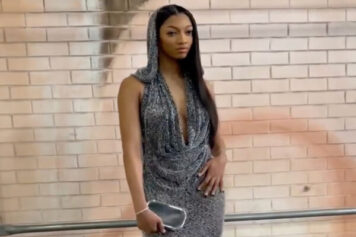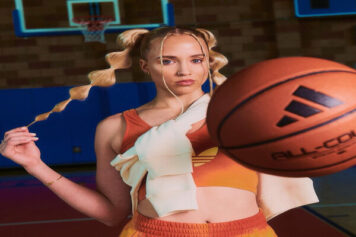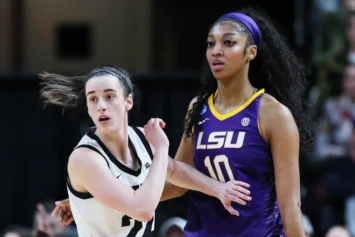When Love Jones dropped on this day in back in 1997, if you wanted to see more than three black faces in a movie you had very few choices: either a Spike Lee Joint or films that dove into the darker aspects of life in the hood.
The early to mid ’90s were dominated by some exceptional films like Boyz n the Hood, South Central, Menace II Society, Set if Off and Juice, but there wasn’t much in the way of young black love and tenderness there.
You basically had John Singelton’s Poetic Justice in 1993. And let’s keep it real, Janet Jackson’s acting was about as nuanced as a fried egg, leaving Poetic Justice more underwhelming than it could have been.
There was little else coming out of Hollywood at the time in terms of seeing diverse characters of color, like something as simple as a poet and photographer navigating their way through their artistic ambitions and the pull of love in young professional adulthood.
Until Love Jones came along, that is.
It was refreshing to see a different aspect of the African-American experience on the big screen, where some of us who had just gotten out of college and weren’t gang-banging, slinging dope, killing or getting locked-up could look at and connect with on a visceral level.
I remember watching Love Jones and thinking, “It’s kind of nice to have a regular movie all to ourselves, like white folks seem to have all the time.”
Seeing young Black love being presented this way was refreshing, and gave those of us who are cognizant and care about our imagery a sense of hope that more projects of widening scope – that dealt with simple humanity outside of guns, drugs, poverty, prison and criminality – would soon be on the way.
We reveled in these young, relatable characters with hopes, dreams and ambitions that went beyond simply making it out of the hood, but into the realms of career and love and, simply, life. And it gave some nuance to the uninitiated on the thriving spoken word seen and poetry slams that were re-invigorating the artistic spirits of the culture’s previous ambassadors such as Gil Scott Heron, Sonia Sanchez, and The Last Poets.
For me, Nia Long was cool as Will Smith’s girlfriend on The Fresh Prince of Bel Air, and as Brandi in Boyz n the Hood, but when I saw her as Nina in Love Jones, she made me feel like I would convert to Hinduism just to have a chance at holding her hand.
And Larenz Tate’s portrayal of Darius, the spoken word artist with the deepest of feelings for Nina, showed his exceptional range, given his remarkably vicious performance on the diametrically opposite end of the spectrum as Kevin Anderson, aka O-Dog, in Menace II Society.
And man-o-manischewitz, the soundtrack was beyond exceptional, providing an accompanying soul and heartbeat to the film that thumps to this very day.
Dionne Farris’ “Hopeless“, Lauryn Hill’s “The Sweetest Thing”, Maxwell’s smooved-out “Sumthin’ Sumthin’“, Amel Larrieux’ “Never Enough“, Trina Broussard’s re-make of Minnie Riperton’s classic “Inside my Love“, Duke Ellington and John Coltrane’s “In a Sentimental Mood“, Xscape’s re-make of The Dramatics’ sensuously sensitive, love-making classic “In the Rain” and Marcus Miller & Meshell Ndegeocello’s hypnotic, hungry-for-your-love-type joint, “Rush Over“, still see some regular light in my daily musical meanderings.
The musical masterpiece walked us through the complexities of the movie characters’ conflicting emotions and complicated feelings, and together, along with the film, pushed us to another place, one where we could finally get some visual and spiritual affirmation of our dreams, goals, ambitions and hopes.
With every viewing and every listen, 20 years later – no matter what state our relationships are in, whether they are broken to the point of no return, in need of repair or thriving – we remain encouraged to continue to find and embrace our talents, and to seek with buoyant sincerity the beautiful, nourishing love that we are all deserving of.



